Search Results
Showing results 1 to 20 of 121
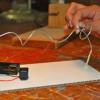
Circuit Game
Source Institutions
In this activity, learners build a game that tests their steadiness. Learners construct the game board by setting up an electrical circuit and a wand.
Build Your Own Wind Turbine
Source Institutions
Learners construct an electricity-generating wind turbine out of a plastic bottle.
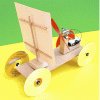
Fan Cart
Source Institutions
If a sailboat is stranded because there is no wind, is it possible to set up a fan on deck and blow wind into the sail to make the boat move?
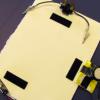
Building a Basic Series Circuit
Source Institutions
This activity was designed for blind learners, but all types of learners can use it to build and examine a basic electrical circuit.
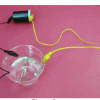
Electroplating
Source Institutions
In this electrochemistry activity, learners will explore two examples of electroplating.
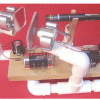
Laser Lissajous: PVC Version
Source Institutions
In this activity, learners use a laser pointer and two small rotating mirrors to create a variety of fascinating patterns, which can be easily and dramatically projected on a wall or screen.

Plugged in to CO2
Source Institutions
In this activity, learners investigate various appliances and electronics, discovering how much energy each uses and how much carbon dioxide (CO2) is released to produce that energy.

Kinetic Sculpture: Program the Pico Cricket to Make Your Art Light Up or Spin
Source Institutions
Use a Pico Cricket (micro-controller) to animate your art! You can program a Pico Cricket to make your art spin, light up, or make music.
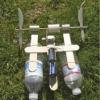
Electric Paddle Boat
Source Institutions
In this activity, learners build an electric two-paddle boat using paint paddles, plastic knives, and empty water bottles.
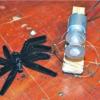
Creepy Crawlers
Source Institutions
Trick your family and friends with this creepy crawler that moves up and down. In this activity, learners construct a circuit and motor device that will move a homemade spider in a spooky way.
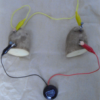
Making a Battery from a Potato
Source Institutions
In this electrochemistry activity, young learners and adult helpers create a battery from a potato to run a clock.
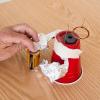
Stripped-down Motor
Source Institutions
In this activity, you'll make an electric motor--a simple version of the electric motors found in toys, tools, and appliances everywhere.
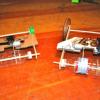
Bottle Cars
Source Institutions
In this activity, learners explore motion, energy, and electricity by constructing bottle cars that run on motors.
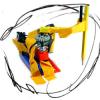
Pico Cricket Compass
Source Institutions
Learners can program a compass to draw a circle by itself using a Pico Cricket, some Legos, and lots of tape! Pico Cricket is required.
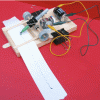
Paper Tape Motion Timer
Source Institutions
In this activity, learners build a recording timer made from simple materials (e.g., small dc motor, sharpie pen, craft sticks, adding machine paper tape, etc.).
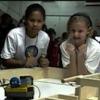
LEGO Robots
Source Institutions
This activity (on page 2 of the PDF under GEMS Activity) is a full inquiry investigation into technology design and testing.
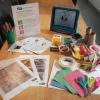
Watch and Create! Creativity For Sustainability
Source Institutions
In this activity, children and adults work together to explore their relationship with technology and examine ways to make sustainable media consumption choices.
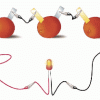
Electricity: Fruit Batteries
Source Institutions
In this activity, learners create a battery from fruit. This activity helps learners explore electricity, electrochemistry, and series circuits as well as the process of scientific inquiry.
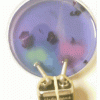
Indicating Electrolysis
Source Institutions
In this activity, learners build a simple electrolysis device. Then learners use an indicating solution to visualize hydrogen and oxygen molecules in water.
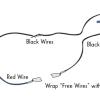
Neural Network Signals
Source Institutions
In this activity, learners create an electrical circuit and investigate how some dissolved substances conduct electricity.
